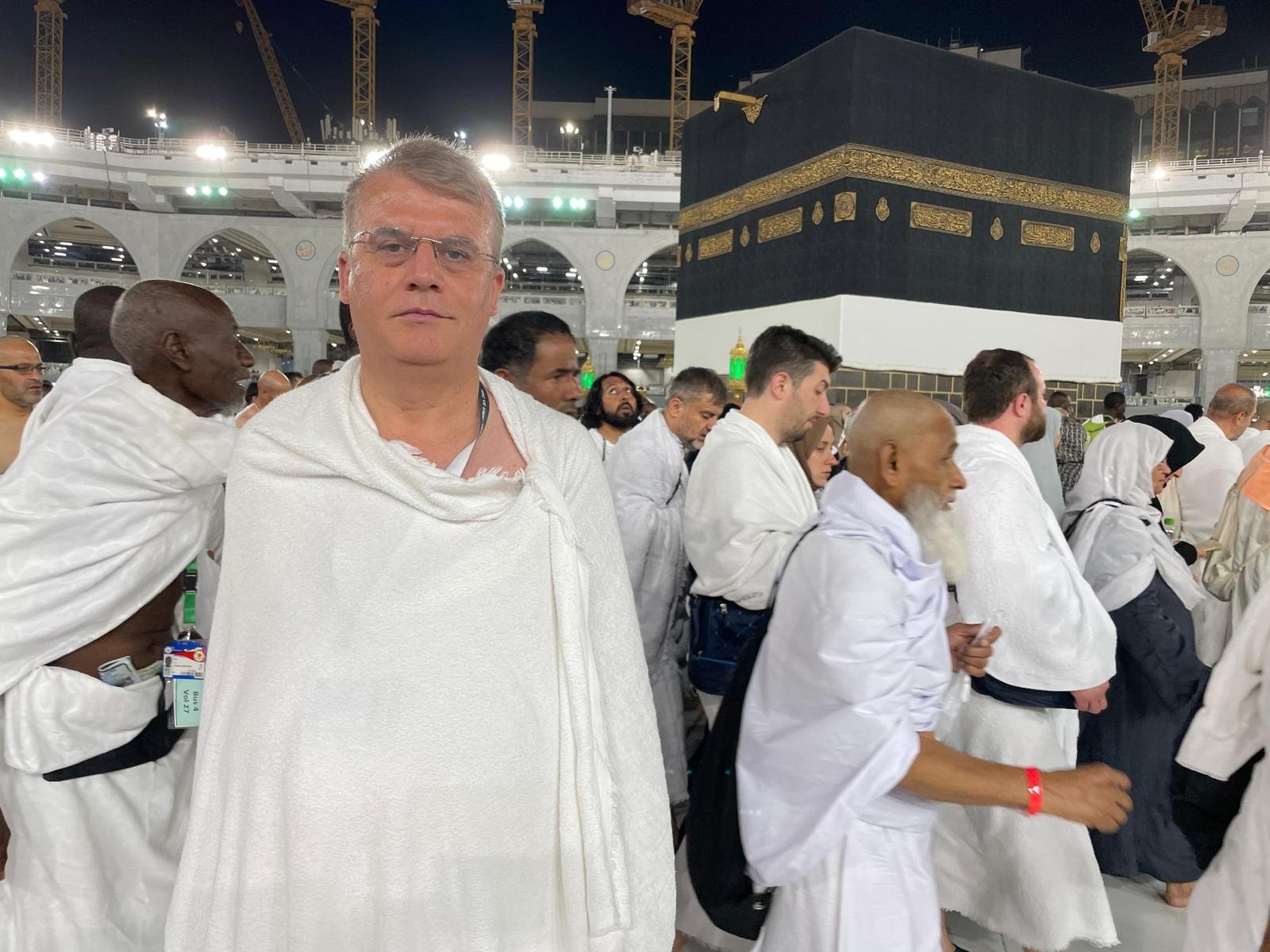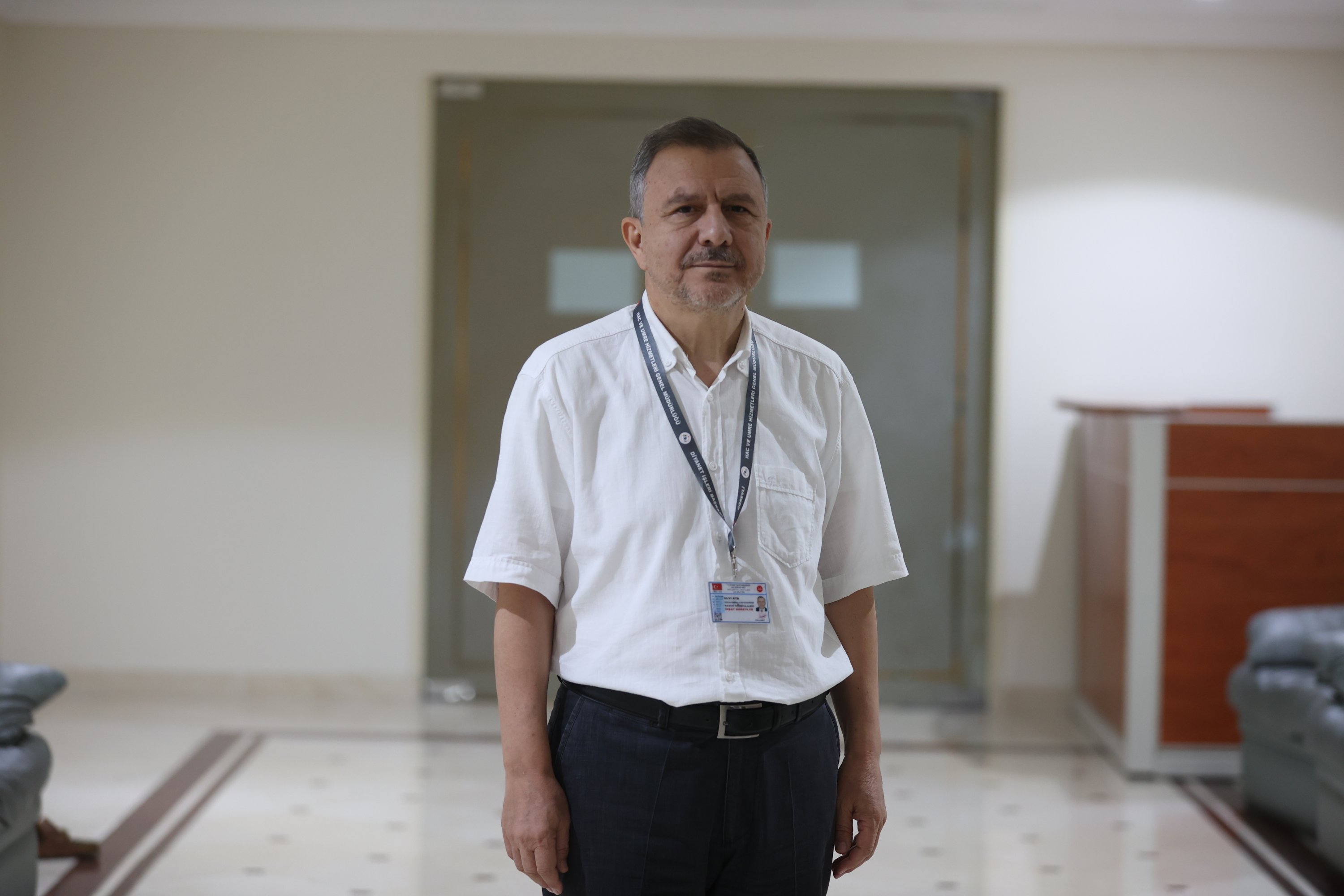© Turkuvaz Haberleşme ve Yayıncılık 2026
The Turkish Presidency of Religious Affairs assures a seamless pilgrimage experience for the faithful visiting Mount Arafat. Equipped with air-conditioned tents, three nutritious meals a day, and essential health services, the organization is committed to the well-being of pilgrims on their spiritual journey.
The anticipation and enthusiasm among pilgrims from across the globe, who have gathered in the holy city of Mecca, is palpable. Their hearts are filled with eagerness to embark on the sacred pilgrimage to Mount Arafat, located approximately 25 kilometers (15.5 miles) east of Mecca.
On Monday, following the afternoon prayer, these faithful will ascend to Mount Arafat, where a series of rituals await them. Presidency of Religious Affairs head Ali Erbaş will lead the prayer after the combined prayers (that travelers can avail of while on long journeys), also known as "Cem-i Takdim," performed on the eve of Qurban Bayram, also known as Eid al-Adha. Subsequently, the pilgrims will proceed to Muzdalifah to engage in a combined/collective prayer session, also known as "Cem-i Tehir."

At Muzdalifah, the pilgrims will gather stones that will be later used in the symbolic act of stoning Satan at the "Jamarat" area in Mina. As the first day of Eid al-Adha dawns, the devotees will participate in the ritual of throwing seven stones at the "Great Satan."
Upon completing the stoning ritual, the pilgrims will conclude their ihram, or state of ritual consecration, by cutting their hair and partaking in necessary animal sacrifices. Subsequently, they will perform the obligatory circumambulation and engage in the essence of the pilgrimage, marking the successful completion of their sacred journey.
Once their pilgrimage to Mecca concludes, nearly 2.4 million Muslims, having transformed into pilgrims, will continue their worship and visits in Medina. Bidding farewell to the Kaaba and the city of Mecca, these pilgrims will undertake a farewell circumambulation, expressing gratitude and reverence.
Dr. Ulvi Ata, an advisor to the Presidency of Religious Affairs, emphasized the significance of Mount Arafat, quoting the prophet (upon whom be peace), "Hajj is Arafat." He expressed that the pilgrims are overwhelmed with indescribable excitement as they prepare to undertake this momentous task. During their time in Mina, they will fervently beseech Allah through continuous prayer, supplication and repentance, fostering a sense of unity with Muslims from all corners of the world.

Uğur Akıllı, one of the pilgrims, shared his sentiments, having arrived in Medina and Mecca for the first time. He marveled at the tranquility and serenity of Medina, spending most of his time near the Prophet Muhammad's Mosque. Mecca, on the other hand, exuded a bustling atmosphere due to the hajj pilgrimage. Akıllı mentioned having performed Umrah amidst the vibrant ambiance of Mecca and expressed his eagerness to reflect on his life during the transformative experience at Mount Arafat, seeking forgiveness from Allah. With utmost humility, he concluded, "If Allah wills, our pilgrimage will be accepted."
Mehmet Küçük, another pilgrim, conveyed his excitement as a first-time pilgrim, expressing gratitude for the opportunity. With unwavering faith, Küçük expressed his hope for a smooth pilgrimage, adding, "We are very happy."
